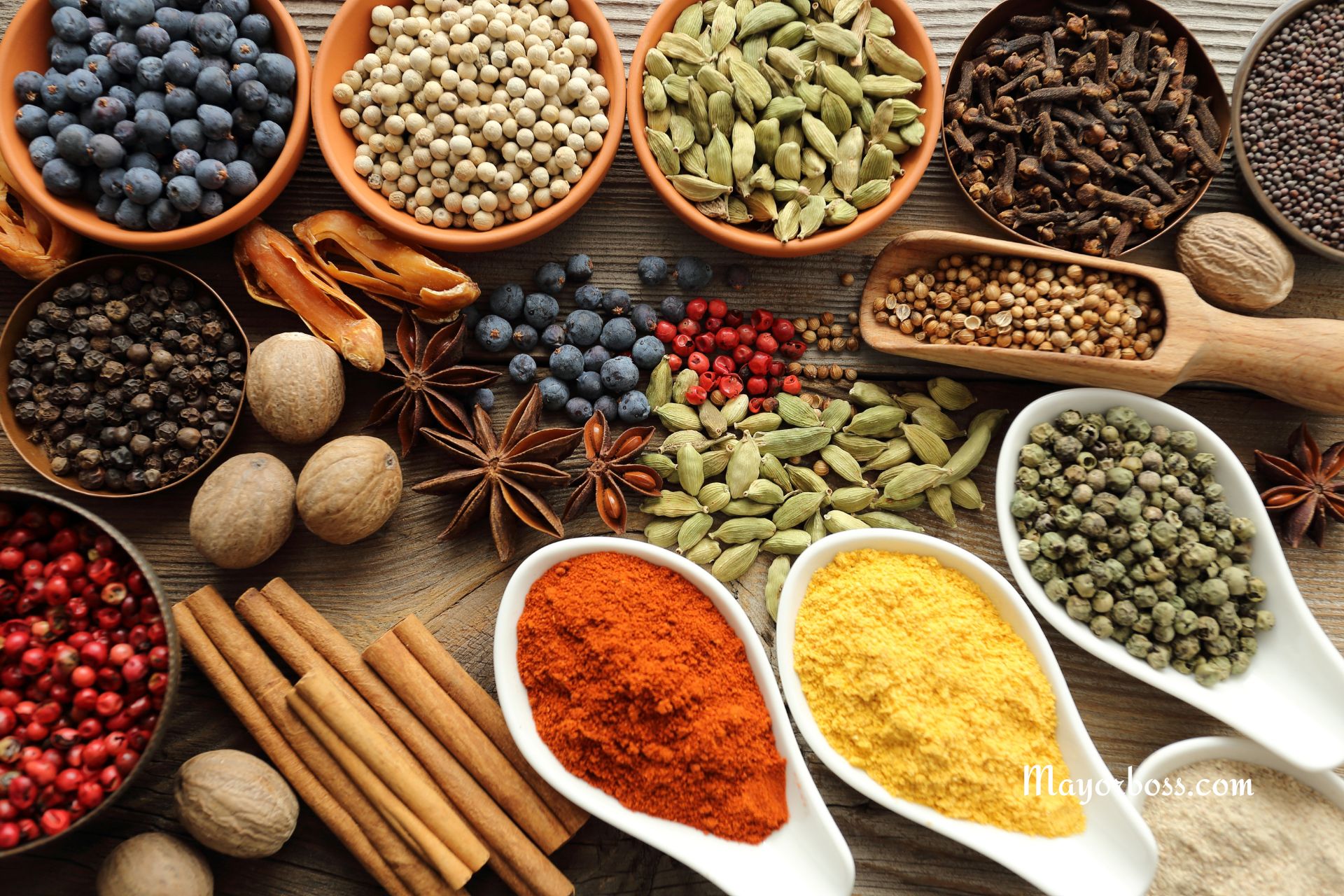Breathe Easier: 5 Spices for Stronger Lungs and Clear Airways
Our lungs are essential for life, constantly working to supply us with the oxygen we need. Respiratory problems ranging from seasonal allergies to more serious conditions can disrupt this vital process, leaving us feeling short of breath and uncomfortable. While seeking professional medical attention is always crucial, incorporating certain spices into your diet may provide additional support for your respiratory system.

How Spices Can Support Lung Health
Spices offer more than just flavor to your meals. Here’s how they can benefit your lungs:
- Anti-inflammatory properties: Chronic inflammation can damage our airways and lungs. Many spices contain natural compounds that help reduce inflammation, easing respiratory distress.
- Antioxidant power: Oxidative stress contributes to lung damage. Antioxidants found in spices may neutralize harmful substances and help protect your lung cells.
- Expectorant effects: Some spices act as natural expectorants, loosening mucus and helping you clear your airways more effectively.
- Antimicrobial properties: Certain spices can combat bacteria and viruses that lead to respiratory infections.
5 Spices to Boost Your Respiratory Health
1. Turmeric
Turmeric, the bright yellow spice with an earthy flavor, is known for its powerful compound curcumin. Curcumin has potent anti-inflammatory properties that can be beneficial for several respiratory conditions. Studies suggest it may ease symptoms of asthma, reduce airway inflammation, and provide support in chronic lung conditions.
- How to use it: Add turmeric powder to curries, stews, or smoothies. You can also try turmeric tea or “golden milk” (a mixture of turmeric, milk, and other spices).
2. Ginger
Ginger has been a staple in traditional medicine for centuries, particularly valued for its soothing effects on respiratory ailments. Its active compounds, gingerol, and shogaol, have both anti-inflammatory and antioxidant properties. Ginger may help open up constricted airways, ease coughs, and reduce mucus production.
- How to use it: Grate fresh ginger into teas, soups, or stir-fries. You can also find ginger supplements or try candied ginger for a sweet and spicy treat.
3. Black Pepper
Black pepper, the ubiquitous seasoning, contains a compound called piperine. Piperine not only enhances the absorption of curcumin (from turmeric) but also exhibits its own potential benefits. It may have anti-inflammatory and antioxidant effects, which could support airway health and lung function.
- How to use it: Generously sprinkle freshly ground black pepper on basically anything! It pairs beautifully with turmeric for both flavor and respiratory benefits.
4. Garlic
Garlic delivers a potent punch of flavor and may offer some lung-loving benefits as well. It contains allicin, a compound with possible anti-inflammatory, antimicrobial, and antioxidant properties. These properties could make garlic helpful in reducing airway inflammation and fighting respiratory infections.
- How to use it: Add minced garlic to stir-fries, sauces, or roasted vegetables. For a more potent dose, try raw garlic (crushed or minced) mixed with honey.
5. Cayenne Pepper
Cayenne pepper packs a spicy kick thanks to a compound called capsaicin. Capsaicin has potential benefits for respiratory health; it may help thin mucus, making it easier to expel, and it could have some anti-inflammatory effects.
- How to use it: Add a pinch of cayenne pepper to soups, stews, or sprinkle it over roasted vegetables for a touch of heat. Remember, a little goes a long way!
Frequently Asked Questions
- Are these spices safe for everyone? These spices are generally safe in culinary amounts. However, some people might experience stomach upset, heartburn, or allergic reactions. Start small and see how your body reacts. Consult your doctor if you are pregnant, breastfeeding, or on medications.
- How long will it take to see results? You might experience some immediate relief from congestion, but the overall benefits take time. Making these spices a regular part of your diet promotes respiratory health in the long run.
- Can these spices replace my medication? No. Spices are a wonderful support tool, but they should not replace any prescribed medications for respiratory conditions. Always consult your doctor before making changes to your treatment plan.
- How much of these spices should I use? Spices are best enjoyed as part of a balanced diet. There’s no single dosage recommendation – gradually increase your intake and see what feels good for you.
Summary
Incorporating anti-inflammatory and decongestant spices into your diet is a simple way to support respiratory health. Turmeric, ginger, cayenne pepper, garlic, and black pepper offer accessible ways to breathe easier.






